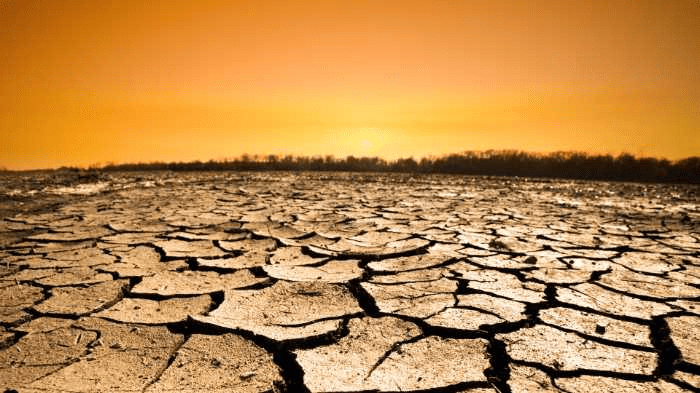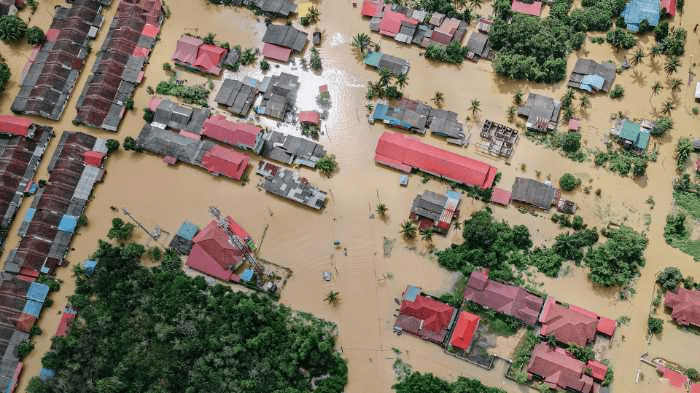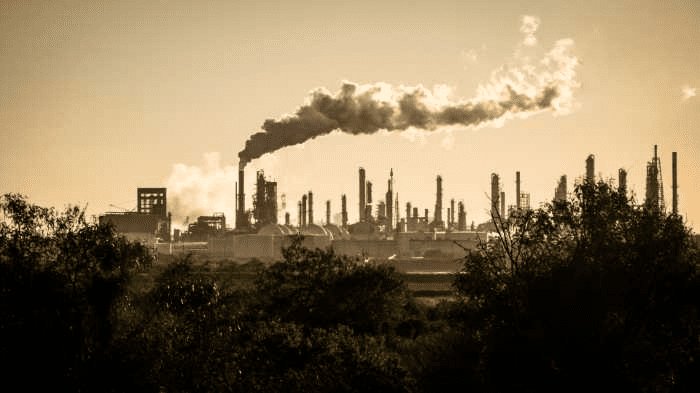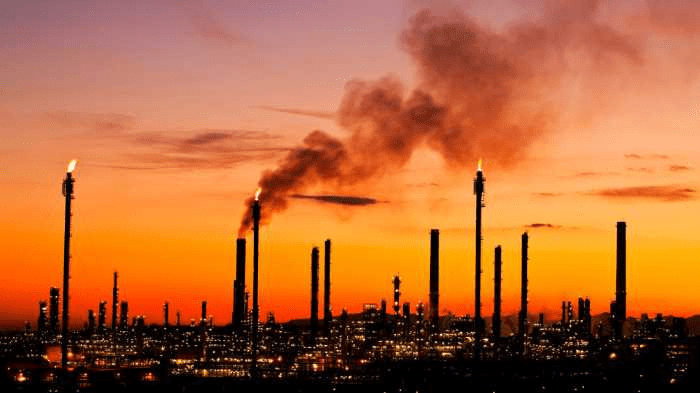
The world is changing. Climate change is a reality that we are all going to have to face in the years to come, and it’s important that we start preparing for it now. One way that you can help prepare for climate risks is by investing in companies and projects that are working to make our world more sustainable. In this blog post, we will discuss climate change investment and how you can get involved!
- What is climate change investment and why should you care about it?
- What are the 5 effects of climate change?
- The benefits of climate change investment
- Who is investing in climate change?
- How important is climate change to investors and stakeholders?
- FAQs
What is climate change investment and why should you care about it?
Climate change investment is a type of investment that aims to create positive social and environmental impact alongside a financial return. This could mean investing in clean energy, green infrastructure, or socially responsible companies. With the global population set to increase and put more pressure on the planet’s resources, it’s important to consider how your investments can help make the world a more sustainable place.
There are many reasons to care about climate change investment, but a few key ones are that it can help create jobs, support developing countries, and protect the environment. By making climate change investments a part of your portfolio, you can be part of the solution to some of the world’s most pressing problems.
Savvy investors copy top-performing traders. When they trade, you trade.
Choose a broker based in the region where you reside.
eToro USA LLC and eToro USA Securities Inc.; Investing involves risk, including loss of principal; Not a recommendation
Socially Responsible Investing Platform – CA
Copy Trading Platform – UK & EU
ESG & Sustainable Investing Platform – UK & EU
Copy Trading Platform – Global
ESG & Sustainable Investment Platform- Global
eToro is a multi-asset investment platform. The value of your investments may go up or down. Your capital is at risk.
What are the 5 effects of climate change?
As the effects of the climate crisis become more and more evident, it is clear that we need to find ways to invest in a more sustainable future. One way to do this is to invest in companies that are working to combat climate change. Here are 5 effects of the climate crisis that your investment could help to address:
1. Rising temperatures
As the world continues to heat up, air conditioning and refrigeration are becoming increasingly important. Not only do they help to keep us cool in the summer months, but they also play a vital role in preserving food and medicine. However, these systems are also major contributors to greenhouse gases.
As a result, investing in companies that are working on developing more efficient air conditioning and refrigeration systems could help to offset the harm caused by rising temperatures. In addition to helping to preserve food and medicine, these more efficient systems would also help to reduce emissions, making them a crucial part of the fight against climate emergencies.
2. Droughts

Droughts are an increasingly common effect of global warming and can cause major crop failures. The lack of water can damage crops and lead to lower yields. Additionally, droughts can lead to water shortages, which can impact both homes and businesses. Investing in companies that are researching new irrigation technologies could help to alleviate the effects of droughts.
These companies are working on developing new methods of delivering water to plants, which could help farmers overcome the challenges posed by climate breakdown. In addition, investing in drought-resistant crops could also help to mitigate the effects of this increasingly common phenomenon.
You can’t improve what you don’t measure.
Free Verified Carbon Calculators.
Erase Your Carbon Footprint in less than 5 Minutes
Personal Carbon Footprint Calculator
Business Carbon Footprint Calculator
3. Floods

Floods are a major problem for communities around the world. They can destroy homes, businesses, and critical infrastructure, and contaminate water supplies. Floods also lead to the spread of disease. In some cases, floods can cause death. Investing in companies that are working on flood mitigation could help to reduce the impacts of floods.
There are many different technologies that are being developed to mitigate the effects of floods, including levees, dams, floodwalls; dredging; and land-use planning. By investing in these companies, we can help to reduce the impact of floods on our communities.
4. Extreme weather events
As the world continues to warm, we can expect to see an increase in the frequency and intensity of extreme weather events. This is already happening: we’re seeing more hurricanes, more tornadoes, and more blizzards. And each one of these events is costing us billions of dollars in damage.
One way to offset the damages caused by extreme weather events is to invest in companies that are working on early warning systems or disaster relief. Early warning systems can give us a head start on evacuating areas that are about to be hit by a hurricane or tornado, which can save lives. And companies that are working on disaster relief can help us to rebuild after these events, which can minimize the financial impact.
So if you’re looking for ways to make your money work for you, consider investing in companies that are working to protect us from extreme weather events. It’s a good investment for both your portfolio and the planet.
5. Melting polar ice caps

Another severe effect of climate change is the melting of the polar ice caps. This is causing sea levels to rise, and resulting in the loss of habitat for many animals. The loss of the polar ice caps would also have a major impact on global weather patterns. The polar ice caps act as a giant reflecting back sunlight and helping to keep the earth cool.
Without them, the earth would heat up rapidly, disrupting weather patterns and resulting in extreme weather conditions. Investing in companies that are working on projects to reduce greenhouse gas emissions could help to slow down the melting of the polar ice caps, and mitigate some of the other effects of the climate crisis.
The benefits of climate change investment
While the effects of global warming are often portrayed in a negative light, there are actually a number of potential benefits that come with investing in climate change mitigation and adaptation. Here are five of the most important:
1. Environmental protection
Reducing greenhouse gas emissions can help to protect the environment from further damage.
2. Health benefits
Improved air quality can lead to better health for both people and wildlife.
3. Economic benefits
Climate change investment can create jobs and spur economic growth.
4. Social benefits
Improved environmental conditions can lead to social cohesion and a better quality of life for all.
5. Moral benefits
Taking climate action can help individuals and businesses feel good about their contribution to society.
There are many reasons to invest in climate change mitigation and adaptation measures. Those who do so can enjoy a range of benefits, both tangible and intangible.
Who is investing in climate change?
The entities investing the most in climate change are corporations and venture capitalists, who are putting money into industries and technologies that will help to mitigate the effects of climate emergencies or adapt to its consequences. This includes companies developing clean energy sources, as well as those working on electric vehicles, batteries, and other clean technologies.
While the motivations of these investors may vary, climate breakdown presents a major business opportunity, and those who are able to capitalize on it stand to make a great deal of money. As more and more industries are forced to grapple with the reality of global warming, it is likely that this trend will continue.
What can investors do about climate change?

Investors are in a unique position to influence the debate on the climate crisis. Through their ownership of shares, they have the ability to engage with companies and encourage them to adopt sustainable practices. This can include pressuring companies to reduce their carbon emissions, invest in energy efficiency, or develop policies to prevent deforestation.
In addition, investors can use their clout to support shareholder resolutions that call for greater transparency on environmental issues. By using their power to make their voices heard, investors can help to drive the transition to a low-carbon economy.
Savvy Investors are also reading…
The Best Sites to Learn How the Markets Work
The Best Artificial Intelligence Investing Sites
The Best Supported Algorithm or Quant Trading Sites
Which companies will benefit from climate change?

Some companies will benefit financially from climate breakdown. Companies that sell air conditioners, for example, will likely see an increase in demand as temperatures rise. Companies that specialize in winter apparel may see a decrease in business, however.
In addition, companies that are responsible for greenhouse gas emissions may be subject to carbon taxes or other regulations designed to address the climate crisis. As a result, climate change is likely to have a mixed impact on the business world. Some companies will prosper, while others will struggle to adapt.
How important is climate change to investors and stakeholders?
In recent years, the issue of climate change has become increasingly important to investors. A growing body of evidence suggests that climate breakdown will have a significant impact on the world economy, and this is starting to influence investment decisions. For example, many institutional investors are now incorporating climate-related risks into their portfolio management strategies.
At the same time, there is a growing market for “green” investments, as investors seek to profit from the transition to a low-carbon economy. Given the potential implications of climate action, it is clear that it is becoming an increasingly important factor in the world of investing.
Who will profit from global warming?

As the world gets warmer, some areas will become more habitable while others will become less so. The tropics will expand, making it possible to grow crops and raise livestock further north. At the same time, the deserts will spread, making it difficult to live in hot, dry areas. As a result, those who live in temperate regions will benefit from global warming, while those who live in tropical or desert climates will suffer.
In addition, those who have the resources to adapt to a changing climate will fare better than those who do not. As the world gets warmer, the divide between the haves and the have-nots is likely to widen.
What is a special climate change fund?
The Special Climate Change Fund (SCCF) was established in 2001 by the United Nations Framework Convention on Climate Change. The fund is used to finance climate action including mitigation and adaptation projects, as well as capacity building and economic diversification.
Till 2021, the fund has provided over USD 375 million in financing for a variety of projects around the world. These projects include initiatives to reduce greenhouse gas emissions, improve waste management, and promote economic diversification. The SCCF is an important tool in a bid to combat climate change, and it will continue to play a vital role in the years to come.

How to invest in a more sustainable future?
Investing in a more sustainable future can mean many things. From investing in renewable energy sources to investing in companies that focus on sustainability, there are a variety of ways to make your money work for a better future.
However, the best way to invest in a sustainable future is to start with yourself. Make small changes in your own life to reduce your ecological footprint, and then encourage others to do the same. Every little bit helps, and by working together we can create a more sustainable future for everyone.
Conclusion
Climate change is a complex issue that will have a mixed impact on the business world. Some companies will prosper, while others will struggle to adapt. Investors are starting to pay attention to the climate crisis, and there is a growing market for green investments. Those who live in temperate regions will benefit from global warming, while those who live in tropical or desert climates will suffer. SCCF is an important tool in the fight against climate emergencies, and it will continue to play a vital role in the years to come. Finally, we can all help create a more sustainable future by making small changes in our own lives.

FAQs
How does the climate crisis affect the global economy?
Climate crisis can cause shifts in global economic activity as certain regions become drier or wetter, affecting the production of crops and the viability of certain industries. In addition, extreme weather events can disrupt supply chains and damage infrastructure, leading to higher prices for goods and services. As a result, the climate crisis can have a significant impact on the global economy.
What are the 3 main impacts of climate change?
- Rising global temperatures
- Increased extreme weather events
- Rising sea levels
What is the biggest climate change threat?
The biggest climate change threat is the loss of habitat due to rising temperatures and changes in precipitation. This loss of habitat will cause animals to lose the places they need to find food and shelter, and will also lead to the extinction of many species. In addition, the loss of habitat will cause plants to die and will reduce the ability of ecosystems to provide essential services, such as purifying water and providing food and shelter for wildlife. As a result, the loss of habitat is the biggest threat posed by climate breakdown.
What are the 5 effects of climate change?
- Destroy natural habitats
- Sparking mass migrations of species
- Cause extinction of plant and animal species
- Create extreme weather conditions
- Melting polar ice caps
What is the role of investment professionals?
They are the financial advisor who has the following roles:
- Manage investment risks and ensure sustainable investing practices
- Handle strategic asset allocation decisions
- Ensure that portfolio holdings are aligned with net zero emissions goals
- Monitor future performance trends to make adjustments as necessary
- Follow economic trends and physical risks
- Wealth management; securities and futures commission
- Ensure the success of any investment portfolio by combating every potential climate risk.
What is net zero?
Net zero is the goal of achieving net zero greenhouse gas emissions. This can be done through a combination of measures, including reducing energy consumption, investing in green energy, and planting trees. The goal is to reach a balance between emitting greenhouse gases and absorbing them. This can be done on an individual, organizational, or country level. Many developed countries have set targets for achieving net zero emissions by 2050. However, developing countries often lack the resources to make these changes and are more likely to be impacted by global warming. As a result, it is important to consider both developed and developing countries when discussing net zero global emissions.
What is investment management?
Investment management is the process of making decisions about financial investments. This includes analyzing current and past financial data, as well as predicting future trends. Investment managers typically work for particular sectors such as banks, investment firms, or other financial institutions. They may also work for individual investors managing financial instruments and giving tax advice. The goal of investment management is to grow and protect the wealth of its clients. This is done by providing advisory services and by monitoring the performance of investments over time. Investment management is a complex process, and it is important for investors to be aware of the risks involved. They should also seek out advice from a qualified financial advisor before making the final investment decision.
What is financial literacy?
Financial literacy is the ability to understand and use financial concepts. This includes financial planning, investing, and managing money. Financial literacy is important because it can help you make informed decisions about your finances and improve your financial stability. There are many resources available to help you improve your financial literacy, including the Securities and Futures Commission and the Monetary Authority of Singapore. You can also speak to a wealth manager or an investment manager for advice.
We would also recommend reading What are Sustainable Investing Companies?

Dean Emerick is a curator on sustainability issues with ESG The Report, an online resource for SMEs and Investment professionals focusing on ESG principles. Their primary goal is to help middle-market companies automate Impact Reporting with ESG Software. Leveraging the power of AI, machine learning, and AWS to transition to a sustainable business model. Serving clients in the United States, Canada, UK, Europe, and the global community. If you want to get started, don’t forget to Get the Checklist! ✅
